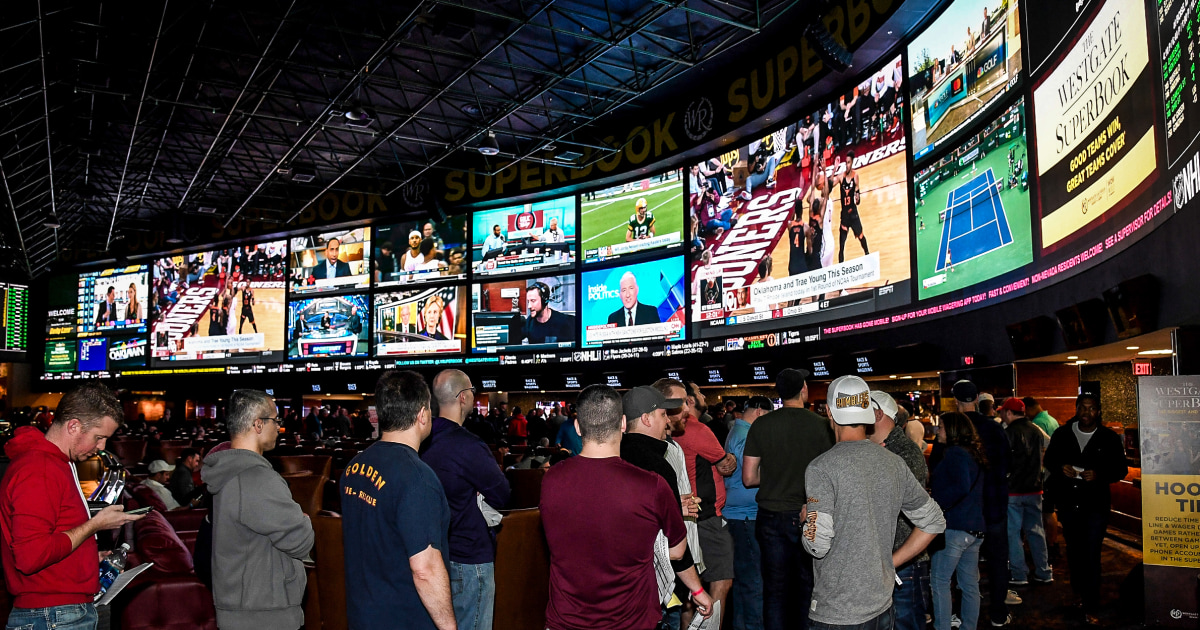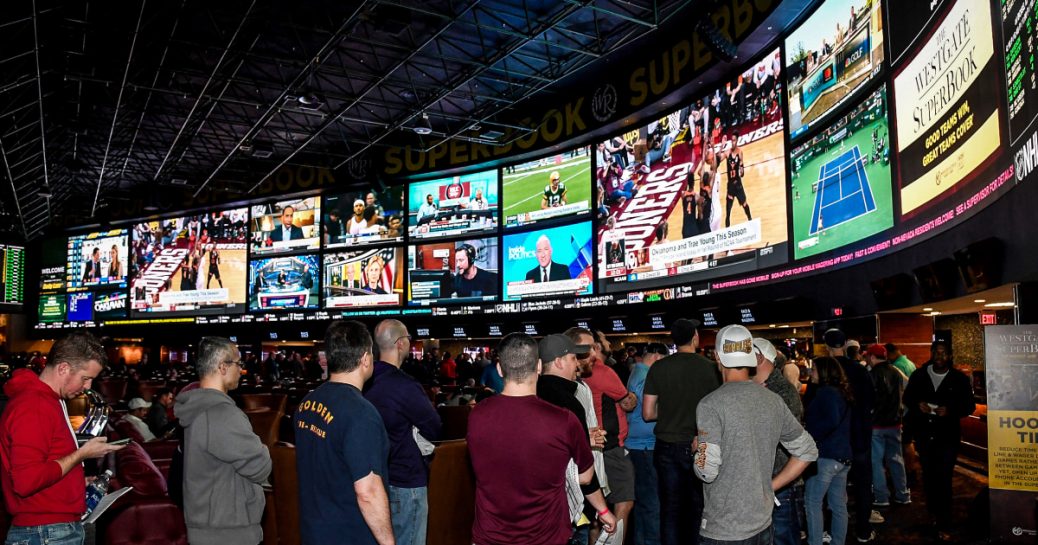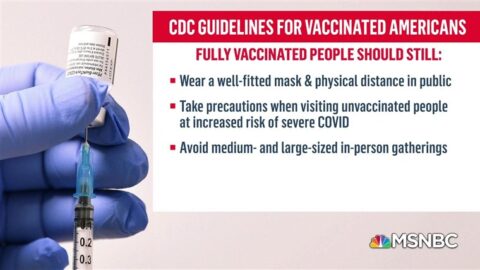
The issue has gained renewed attention in recent weeks after the Los Angeles Dodgers fired Shohei Ohtani’s interpreter, Ippei Mizuhara, following allegations that he stole money from the star to cover gambling debts. (Mizuhara’s story has shifted, and he has not commented directly about the theft allegations.) Around the same time, Cleveland Cavaliers coach J.B. Bickerstaff said he had received threats from gamblers.
The companies behind the apps say they’re taking steps to reduce the risk of problem gambling, and they question whether the trend is as big as others say. In their view, mobile betting allows for oversight of practices that used to happen illegally, without safeguards.
FanDuel, which has amassed roughly 2.5 million average monthly players, said it sometimes suspends or even closes accounts if customers display problematic activity, like wagering higher and higher amounts after a series of losing bets.
“We’re making sure that the small percentage of people in the United States that should not be using our platform — similar to how they should not be drinking alcohol if they have a problem with alcohol — are not able to get access to it,” said Chris Jones, a spokesperson for the company. He declined to specify how many such instances there have been.
DraftKings — which had 3.5 million average monthly paid users at the end of last year, up from 1.5 million at the end of 2020 — declined to be quoted for this story.
Experts on problem gambling said that despite the companies’ efforts, there’s still a higher risk of addiction now that sports betting is more accessible and highly advertised.
Several experts pointed out particular aspects of online sports betting that they said can make it more addictive than traditional gambling. For instance, the focus on sports can make bets seem less risky, since people have prior knowledge of a player’s stats or a team’s performance. And unlike a casino, mobile apps allow people to wager money directly from their bank accounts.
“One can easily, rapidly place many bets that may make it more feasible for vulnerable individuals to experience gambling problems,” said Marc Potenza, director of the Center of Excellence in Gambling Research at Yale University.
Plus, the possibilities are virtually endless.
“There’s hundreds, if not thousands, of wagers within each individual game that can be placed now on a smartphone,” said Josh Ercole, executive director of the Council on Compulsive Gambling of Pennsylvania. “You’re not calling your bookie to place ‘the Eagles are going to beat the Giants’ or whatever.”
Whyte said sports betting apps should have easy-to-use, visible tools that allow players to set limits on the time and money they can spend, and they should offer easy access to the national helpline.
DraftKings, FanDuel and other apps do enable users to limit the money they can wager, number of bets, or time spent betting. DraftKings users can find that in their settings, under the title “Responsible Gaming,” while FanDuel users can do so via a small icon labeled “RG” at the top of the homepage. FanDuel also advertises a helpline when users log in, and both apps allow users to voluntarily ban themselves.
Experts also said a rise in advertising for sports betting is helping to fuel the trend: U.S. sports betting operators spent around $282 million on national TV ads from September 2021 to May 2022, according to one report.
“Before 2018, there was no advertising for sports betting during events. Now, you not only have sports betting ads saturating the events, you can even bet on the game that’s right in front of you,” Whyte said.
Cait DeBaun, a spokesperson for the American Gaming Association, suggested that advertising is “one of the top reasons that customers move to legal, regulated sportsbooks.” Some FanDuel ads highlight the app’s voluntary time and wager limits.
Jake, a 49-year-old member of Gamblers Anonymous, said he’s not opposed to legal sports betting but worries that advertising and targeted promotions make it difficult for some people to quit. He requested that his last name not be published for privacy reasons.
Online sports betting is not yet legal in Georgia, where Jake lives, but he said he sees lots of young people at Gamblers Anonymous meetings, many of whom are addicted to mobile gaming.
“In meetings, I’m seeing people younger and younger. When I first started meeting, I was the youngest. I was in my early 40s,” he said.
Jake said his addiction took off when he started betting illegally online via bookies and offshore websites.
“I was highly competitive in sports and played a lot of high school sports,” Jake said. “After high school, I didn’t play and I missed the competitive edge. I chased that high, and I got it from gambling.”
In the end, he said, “I lost a marriage. I lost a business. … I would get loans, I would run credit cards up — hundreds of thousands of dollars lost.”
Around 1% of U.S. adults meet the diagnostic criteria for a gambling addiction, according to the National Council on Problem Gambling. But in 2021, a council survey found that a quarter of young adults frequently experienced at least one sign of problem gambling, like hiding bets from other people or feeling restless or irritable when they tried to scale back.
“The legalization of sports betting, the ease of online betting platforms and the normalization of sports wagering contribute to its prevalence among those struggling with addiction,” Lin Sternlicht, co-founder of Family Addiction Specialist in New York City, said in an email. She added that push notifications create a sense of urgency that can foster addictive behavior.
Both the gaming industry and federal lawmakers have endeavored to address these issues.
Last week, seven gaming companies, including DraftKings and FanDuel, announced a trade group to promote responsible gaming research and education. The group hopes to create a database that enables companies to share information — for instance, if a user voluntarily bans themselves from one app, other companies would know to ban the user as well.
Last year, the American Gaming Association also instituted a requirement that people who appeared in sports betting ads be at least 21 and prohibited college partnerships that promoted sports betting.
Meanwhile, Democrats in the House introduced a bill in January that would set aside 50% of revenue from a federal tax on sports wagers for gambling addiction treatment and research.
Whyte said the action is much needed.
“The federal government collected, last year, more than $8 billion in gambling tax revenue. Yet they don’t put a single penny of those windfall profits back into the health system,” he said.










Recent Comments